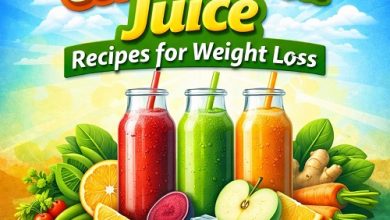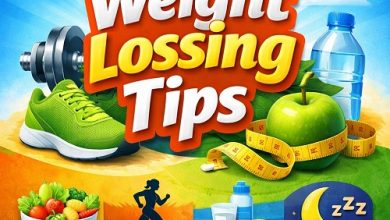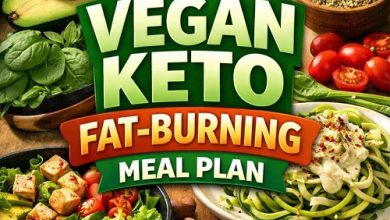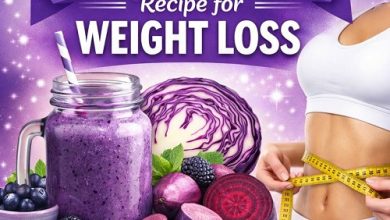4 Surprising Snacks That Pack More Calcium Than Your Favourite Yogurt
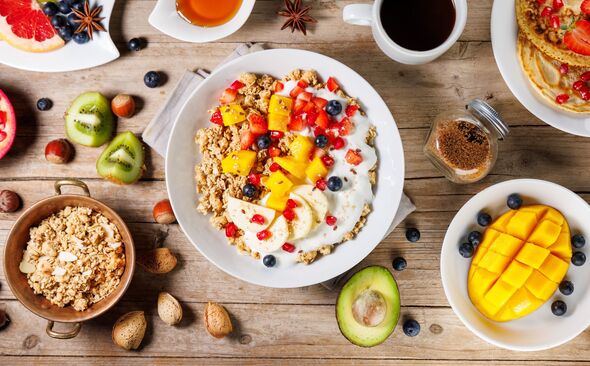
Calcium is one of the most essential minerals for your body. It’s the building block of strong bones and teeth, keeps your muscles functioning smoothly, and even helps your heart maintain a steady rhythm. Most people immediately think of dairy products—especially yogurt—when they hear about calcium. While yogurt is indeed a great source, it’s far from the only one. In fact, some snacks can give you even more calcium per serving than a cup of your favourite yogurt.
That’s right—if you’ve been relying solely on yogurt to meet your calcium needs, you might be missing out on some surprisingly powerful alternatives. We’ll break down why calcium is so important, how much you actually need daily, and reveal four unexpected snacks that pack a bigger calcium punch than yogurt. By the end, you’ll know exactly how to make smarter, more nutrient-rich snack choices.
Why Calcium Matters So Much
Before we dive into the snacks, let’s quickly understand why calcium deserves so much attention:
- Bone Health: About 99% of your body’s calcium is stored in bones and teeth. Adequate intake prevents osteoporosis and fractures as you age.
- Muscle Function: Calcium helps muscles contract properly, including your heart muscle.
- Nerve Transmission: It plays a role in sending messages between your brain and the rest of your body.
- Blood Clotting: Without calcium, your body couldn’t form clots to heal wounds.
How Much Calcium Do You Need?
- Adults (19–50 years): 1,000 mg/day
- Women over 50 & men over 70: 1,200 mg/day
- Children & teens: 1,300 mg/day (to support bone growth)
A standard cup of plain yogurt usually provides about 250–300 mg of calcium. That’s roughly 25–30% of your daily requirement. Impressive—but as you’ll see, there are snacks that can easily outdo it.
Discover 4 surprising snacks that deliver more calcium than yogurt! From chia seeds to almonds, sardines, and edamame—boost your bone health with these nutrient-packed foods.
Snack #1: Chia Seeds
Why They’re Surprising
Chia seeds may be tiny, but they’re absolute nutritional powerhouses. Most people know them for their omega-3s and fiber, but they also happen to be packed with calcium.
Calcium Content
Just 2 tablespoons of chia seeds (28g) provide around 180 mg of calcium. That’s more than half the calcium in a half-cup serving of yogurt. If you eat a standard 3–4 tablespoon portion in chia pudding, you could easily surpass yogurt’s calcium content.
How to Enjoy Them
- Mix chia seeds with almond milk for a chia pudding topped with fruits.
- Sprinkle them over smoothies, oatmeal, or salads.
- Stir them into baked goods like muffins or homemade granola bars.
Bonus Benefit: They’re rich in plant-based protein and soluble fiber, keeping you full longer.
Snack #2: Almonds
Why They’re Surprising
Nuts aren’t usually the first food that comes to mind when thinking about calcium, but almonds break the mold. They’re a nutrient-dense snack that not only delivers healthy fats but also a significant calcium boost.
Calcium Content
One cup of almonds contains around 385 mg of calcium. Even a smaller snack portion (¼ cup, about a handful) gives you 95 mg, which is roughly one-third of what a yogurt cup provides.
How to Enjoy Them
- Eat them raw or roasted as an on-the-go snack.
- Blend into smoothies for a creamy, nutty flavor.
- Spread almond butter on toast or pair it with apple slices.
Bonus Benefit: Almonds are also loaded with magnesium and vitamin E, making them excellent for bone and skin health.
Snack #3: Canned Sardines (with Bones)
Why They’re Surprising
Seafood fans, rejoice! Sardines are one of the richest natural sources of calcium—especially when eaten with the tiny, edible bones. While they may not be your typical “snack,” sardines on crackers or toast can be a quick, protein-packed option.
Calcium Content
A small can (3.75 ounces) of sardines provides about 325 mg of calcium—already more than a full serving of yogurt.
How to Enjoy Them
- Mash them with avocado and lemon for a spread on whole-grain crackers.
- Add them to salads for extra protein and calcium.
- Mix into pasta for a Mediterranean-inspired dish.
Bonus Benefit: Sardines are also rich in vitamin D, which helps your body absorb calcium more efficiently.
Snack #4: Edamame (Young Soybeans)
Why They’re Surprising
Edamame is often enjoyed as a tasty appetizer in Japanese restaurants, but did you know it’s also a calcium powerhouse? These little green pods are rich in plant-based protein, making them a perfect guilt-free snack.
Calcium Content
One cup of cooked edamame delivers about 250 mg of calcium—almost the same as yogurt, sometimes even more depending on the variety.
How to Enjoy Them
- Steam edamame pods and sprinkle with sea salt for a quick snack.
- Toss shelled edamame into salads or grain bowls.
- Blend into hummus for a protein- and calcium-rich dip.
Bonus Benefit: Edamame is also high in isoflavones, plant compounds that may support bone health in postmenopausal women.
Comparison: Yogurt vs. These Snacks
Here’s a quick breakdown:
Snack (Standard Serving) | Calcium (mg) |
| Yogurt (1 cup) | 250–300 mg |
| Chia Seeds (3 tbsp) | ~270 mg |
| Almonds (1 cup) | 385 mg |
| Sardines (1 small can) | 325 mg |
| Edamame (1 cup cooked) | 250 mg |
Extra Tips for Boosting Calcium Intake
Getting enough calcium isn’t just about one food. Here are some ways to maximize your daily intake naturally:
- Pair Calcium with Vitamin D – Your body needs vitamin D to absorb calcium properly. Sunlight, fatty fish, and fortified foods can help.
- Spread It Out – Your body absorbs calcium more efficiently when taken in smaller amounts throughout the day, not all at once.
- Limit Soda and Excess Caffeine – These can interfere with calcium absorption.
- Go Plant-Based (When Possible) – Dark leafy greens, beans, and fortified plant milks are great non-dairy calcium sources.
- Check Labels – Many cereals, juices, and snacks are fortified with calcium—an easy way to get a boost.
Why You Shouldn’t Rely on Yogurt Alone
While yogurt is fantastic for gut health and protein, relying on it as your only calcium source can be limiting. Some people are lactose intolerant or vegan, while others simply want more variety in their diets. Expanding your calcium sources makes your nutrition more balanced and exciting.
Final Thoughts
Yogurt may be the classic calcium star, but it’s not the only option—and certainly not the most powerful one. From crunchy almonds to tiny chia seeds, calcium-rich sardines to protein-packed edamame, there are plenty of surprising snacks that deliver more calcium than your favourite yogurt.
Next time you’re looking for a smart snack, reach beyond the dairy aisle. Not only will your bones thank you, but you’ll also discover new flavors, textures, and health benefits along the way.
So, before you reach for that yogurt cup, ask yourself: Why not try a handful of almonds, a chia pudding, or even a quick bowl of edamame? Your body will thank you with stronger bones, better energy, and improved overall health.

